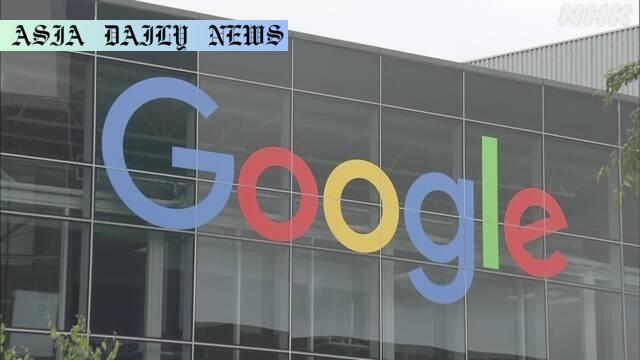Google Monopolizes – A US federal court finds illegal control over digital advertising tech. Impacts loom for Google’s business model.
A US federal court ruled Google monopolizes two digital advertising markets.
The ruling addresses Google’s publisher ad server and ad exchange practices.
Google’s appeal could face challenges, affecting its business model.

US Court Ruling: Google’s Digital Advertising Monopoly
Google Found Guilty of Monopolizing Digital Ad Markets
In a landmark decision, the United States District Court for the Eastern District of Virginia ruled that Google has been illegally dominating two critical markets in digital advertising. The court found that Google engaged in anti-competitive practices with its publisher ad server and ad exchange tools over the past decade. This ruling is a significant step in addressing concerns about monopolistic behavior in the tech industry and its impact on consumers, publishers, and competitors.
According to the court, Google leveraged contractual policies and technological integration to tie its publisher ad server to its ad exchange platform, effectively shutting out competition. This practice prevented rival companies from entering the market and significantly impacted the competitive landscape of digital advertising. The ruling emphasized that this behavior harmed Google’s publisher clients and the broader ecosystem of web consumers who rely on open and fair access to information.
The Implications for Google’s Core Business Model
The decision could potentially shake Google’s core advertising operations, which represent a substantial portion of its revenue. The case, initially brought forth by the US Justice Department and other stakeholders in 2023, highlights that Google’s alleged violation of antitrust laws extends beyond digital search into the realm of advertising technology. If upheld, the ruling could result in significant operational restructuring for Google, reshaping its control over digital advertising technologies.
Google has already announced plans to appeal the decision, signaling a lengthy legal battle. However, industry experts suggest that the company’s path forward could involve regulatory interventions, divestitures, or stricter oversight. For competing providers of digital advertising services, this decision could open new opportunities to compete more effectively in a landscape previously dominated by Google.
Impacts on Market Competition and Consumers
This ruling marks a victory for smaller companies and competitors in the advertising industry. It also brings hope for greater transparency and fairness across the digital advertising supply chain. By addressing Google’s allegedly exclusionary conduct, the court seeks to establish a more balanced playing field for both publishers and advertisers. This shift could benefit consumers through reduced costs and increased access to diverse sources of information.
Additionally, the decision may encourage further scrutiny of other major tech firms accused of leveraging monopolistic practices. The outcome of this case serves as a precedent and an example for other regulatory and antitrust investigations targeting technology giants in the United States and beyond.
Challenges Ahead for Google
While Google will undoubtedly challenge the ruling through the appeal process, the legal and reputational implications of this decision are far-reaching. The company, which has faced similar judgments in the past regarding its search engine dominance, is under increasing pressure to revise its business practices. This case adds to the global scrutiny of Big Tech and reinforces the demand for more equitable practices in the tech industry.
Conclusion
As the legal battle unfolds, questions remain about how this decision will reshape the digital advertising landscape. Will Google adapt to new regulatory demands, or will antitrust authorities impose stricter penalties to ensure compliance? In any case, the ruling highlights the ongoing clash between technological innovation and the need to maintain a competitive, fair economy. The court’s decision underscores the importance of fostering competition, ensuring the sustainability of open markets, and protecting consumer interests.
Commentary
Commentary: Google’s Antitrust Ruling
Challenging the Monopoly of a Tech Giant
The recent ruling against Google by a US federal court underscores the growing tension between large technology companies and antitrust regulations. For years, Google has dominated the digital advertising sector, reaping immense profits while smaller competitors and publishers struggle to maintain a foothold. This judgment highlights the necessity of holding such corporations accountable for their market practices in protecting fair competition.
Google’s ability to tie its publisher ad server and ad exchange together has raised questions about whether innovative technologies should come with unchecked power. While integration can drive efficiency, it should not come at the cost of stifling innovation or harming smaller players. This speaks to a broader critique of Big Tech—how much control is too much in a digital ecosystem that thrives on openness and transparency?
The Complexity of Balancing Innovation with Regulation
While many welcome this decision as a victory for consumers and fairness, it’s important to acknowledge the complexities of regulating technology giants like Google. Innovation often comes with dominance; companies like Google invest heavily in developing technologies that define markets. However, their methods to maintain market share should not stifle creativity elsewhere.
This ruling provides an essential framework for achieving balance. Regulators must ensure that dominant companies like Google continue contributing to innovation without suppressing competition. Simultaneously, Google, through introspection, should align its business strategies with the broader needs of the market and society.
What Lies Ahead?
The tech world faces a turning point. Cases like this encourage higher accountability for companies operating at the forefront of innovation. It also opens up opportunities for newcomers to redefine the competitive landscape. As regulatory scrutiny intensifies worldwide, the outcome of Google’s appeal will likely serve as a key precedent for similar cases in the future, shaping the dynamics of the digital advertising marketplace for years to come.


